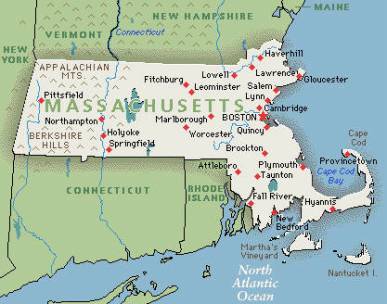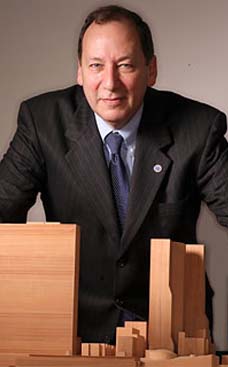
Although programs like Teach for America, AmeriCorps, and the Jesuit Volunteer Corps are other popular destinations for BC graduates, the Peace Corps program is attractive because of the large range of placements that are available, serving 139 countries around the world. Its Web site reports that during their two-year term, volunteers have the opportunity to "work on issues ranging from AIDS education to information technology and environmental preservation."
Boston College grads share Peace Corps experiences
Recent grads share Peace Corps experiences
By Amanda Del Balso
Reporter
As a Jesuit institution, Boston College is well-known for stressing the moral values associated with "men and women for others." Service and immersion programs like Pulse, 4Boston, Appalachia Volunteers, and the Pedro Arrupe immersion trips are widely popular, so it is no surprise that many BC graduates choose to participate in longer, more intensive service programs after graduation.
Christy Dunn, BC '07; Susie Connolly, BC '07; Stephanie Locatelli, BC '06; and Laura Mueller, BC '07, are four graduates who decided to join the Peace Corps. In a recent interview with The Heights, they spoke about their experiences in this program, which range from teaching English and working with nongovernmetnal organizations to running a community center.
The Peace Corps, established by President John F. Kennedy in 1961 whose mission is to promote world peace and friendship, is a familiar motto to BC students who spend their college career being instilled with Jesuit ideals.
"I think that at a school like BC where volunteering is such a big part of everyday life, organizations like the Peace Corps seem like a natural step for people, particularly for those who aren't sure what their paths are going to be in terms of careers," Dunn said. "Many people participate in international service trips and groups like Appalachia during their time at BC, and the Peace Corps is almost like an extension of that, just with a bigger commitment," she said.
Although programs like Teach for America, AmeriCorps, and the Jesuit Volunteer Corps are other popular destinations for BC graduates, the Peace Corps program is attractive because of the large range of placements that are available, serving 139 countries around the world. Its Web site reports that during their two-year term, volunteers have the opportunity to "work on issues ranging from AIDS education to information technology and environmental preservation."
The Peace Corps also provides its volunteers with an extensive training program. "At training, we'll have language, cultural, technical, and health training classes for about eight to 10 hours, which makes it a pretty intense process," said Mueller, who recently arrived in Tanzania. "Peace Corps has one of the quickest and effective methods of teaching foreign languages, which is critical because when language is such an important part of integrating into the culture," she said.
Peace Core volunteers often report that many of their experiences in the region are challenging because the countries and cultures that they work in are very distinct from the United States. "The biggest apprehension that I had coming into the program is that I wouldn't be able to handle being completely cut off from any sort of culture that I had been familiar with," Dunn said.
However, volunteers like Connolly, in West Africa, Mauritania, report that their experiences, although challenging at times, are extremely rewarding. "Even in just three short months, my experience has been filled with extreme highs and lows. It's not perfect, and sometimes I just want to lie on the couch in front of the television and order stuffed-crust pizza in America. But there are other times - like when I have a meaningful conversation with a Mauritanian man about girls' education, or successfully bargain in Hassaniya for a bucket in the market, or when my language facilitator bursts into tears when my classmates and I give him a gift at the end of our training, or simply when I can see more stars in the sky than I'd ever imagined possible - that convince me that the rewards far outweigh the challenges and I have made the right choice."
The Peace Corps application process involves several steps that evaluate appropriate placements for each volunteer. Locatelli, serving in Cape Verde, West Africa, said: "The application process is kind of extensive. You fill out an online application, which involves you writing aspiration and personal statements, getting letters of recommendation from employers, teachers, and peers, and going through a government background check. From there, you get called into an interview. After the interview, if you and your recruiter decide the Peace Corps is right for you, he looks into a nomination for you, based on your preferences as to what job you'd like to do, what region you'd like to go to, and when you'd like to leave."
Volunteers from BC agree that the application process helped them discern that Peace Corps was the right post-graduate service program for them to pursue. They have been satisfied with the training and wide range of situations that the Peace Corps has enabled them to encounter. "One day, I was walking with a fellow volunteer down the street in the capital and a guy stopped us to ask if we were Peace Corps. I said yes, and he thanked us for being here and the work we were doing. I asked him how he knew that we were Peace Corps, and he said that he could just tell. It was one of those moments that really showed me why I'm here," Dunn said.
Locatelli agreed with Dunn's positive sentiment about the program: "Peace Corps is 100 percent accurate with its slogan, 'The toughest job you'll ever love.' It's not for everyone, but for those who are willing to give their all to this experience, it's not uncommon to get back tenfold … Joining the Peace Corps is the best decision that I've made in my life."
A Peace Corps representative will be holding an information session about the program at 7 p.m. tonight, in Gasson 310.













